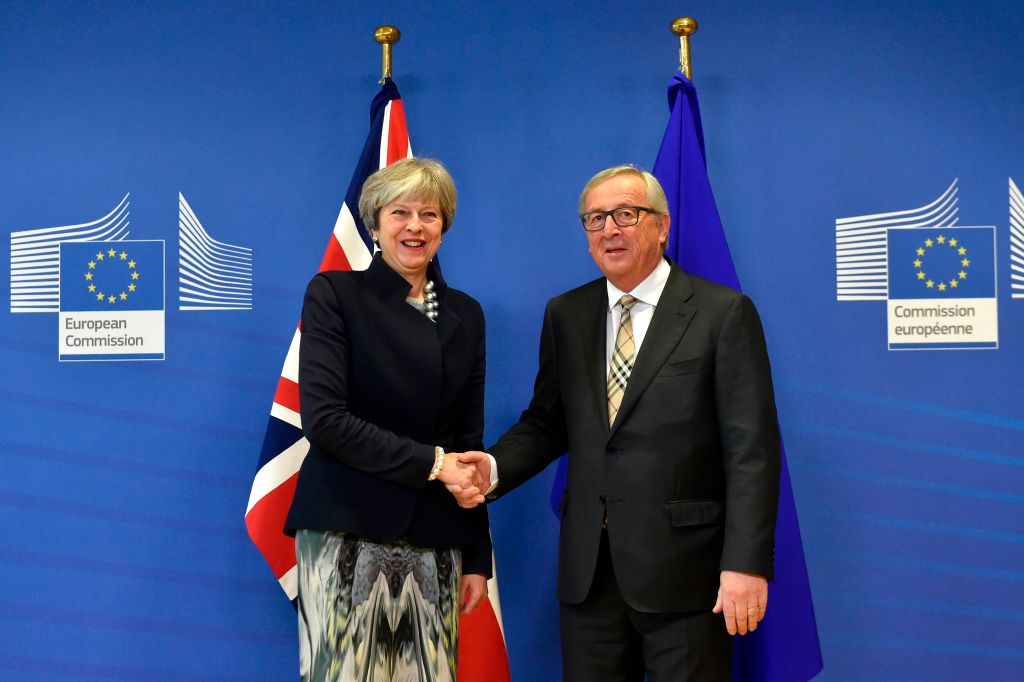The referendum result was initially recognised by the British Government as a decision to take back control of money, laws, borders and taxes, which had to be given effect to. It accepted this meant leaving the EU’s single market and customs union. The three page statement issued at Chequers last Friday on behalf of the Cabinet, euphemistically described as a ‘substantial evolution’, signals the retreat from this policy. The Government now favours a one-sided agreement, similar to that between the EU and Ukraine, which is contrary to the national interest.
Instead of taking back control of laws, the Government now proposes ‘to commit by treaty to ongoing harmonisation with EU rules on goods’, which represent the majority of British exports. This will make trade agreements based on mutual recognition of standards very difficult. In substance, the Government proposes staying in the single market for goods. Industries of the future, such as robotics, computing, and autonomous vehicles, will remain under EU control.
Wary of inevitable accusations of ‘social dumping’, the UK promises to accept EU state aid law and not to diminish ‘regulatory standards’ on the environment, social policy, and consumer protection. This is a mistake. If voters want to keep today’s standards, it will elect politicians to maintain them. To forbid Parliament, for example, from making it easier to build infrastructure or housing by altering EU environmental law is not taking back control. Future generations should not be denied their legitimate right to experiment. As Parliament is sovereign, it would, as now, have the theoretical ability to reject existing and new EU laws, but there would be ‘consequences’ if it did so. These will no doubt be such that it is never sensible to reject any individual EU law, as under the European Economic Area agreement.
The Government also suggests a ‘Facilitated Customs Arrangement’, a rebranding of its ‘New Customs Partnership’, under which the UK would collect the EU’s common external tariff for the EU at the UK border. Imports intended solely for the UK would be subject to UK duty. While it insists this is not a customs union, the Chequers statement says the UK and EU should operate ‘as if a combined customs territory’. The ‘substitution of a single customs territory for two or more customs territories’ is the legal definition of a customs union. Whether this complex and bureaucratic proposal is compliant with World Trade Organisation rules is wholly unclear.
Instead of ending ECJ jurisdiction as promised, the Government now favours a ‘joint reference procedure’ to that court from an EU-UK Joint Committee or arbitration panels. Consequently, the ECJ would retain power to issue rulings binding the UK under international law, despite the Government’s contrary claims. UK courts would also have to pay ‘due regard’ to ECJ decisions. As with the similar duty under the Human Rights Act in relation to the European Court of Human Rights, it is probable our courts would, under most circumstances, follow ECJ decisions.
While the Government remains outwardly committed to ending free movement, it now endorses a ‘mobility framework’ under which EU and UK citizens would be able to migrate to and from each other’s territories. The details remain unclear, but the Government has apparently jettisoned the cardinal principle that immigration policy should be under elected British politicians’ exclusive control.
Those in Brussels have seen how the Government has conceded on nearly every major issue in its desperation to reach an agreement with the EU: from the sequencing of the negotiations, the estimated £39 billion exit bill which the UK has no legal liability to pay, to the jurisdiction for eight years of the ECJ over EU citizens who arrived before exit day, whose rights will be supreme, permanently, over all UK law.
The most unjustifiable capitulation concerns Ireland, where the Government conceded the 1998 Belfast Agreement prevented any form of customs checks and regulatory controls between Northern Ireland and the Republic. This assertion, promoted by Irish nationalists and pro-EU campaigners, is simply false. Having accepted it, the UK committed in December to a ‘backstop’ under which it would maintain the customs union and ‘full alignment’ with various rules of the EU’s single market unless and until the EU agrees otherwise. The EU has ruthlessly exploited this mistake intent either to devalue the UK’s territorial integrity by proposing a customs frontier between Northern Ireland and Great Britain, or to force the entire UK to stay in its single market and customs union.
The EU is likely to seize on the Government’s latest proposals in the same fashion. The UK has already accepted the principle of a customs union as part of this backstop. The Chequers statement will be seen as acceptance of remaining in the single market at least for goods, for which substantial financial contributions will naturally be demanded. Having conceded on EU law making and the ECJ, the EU will probably demand that it retains control of further policy areas to prevent ‘cherry picking’ and ‘social dumping’. As VAT is levied as a customs duty on imports from outside the EU, harmonisation of indirect taxes will be needed to eliminate customs checks. The ‘labour mobility’ agreement will likely be used to undermine democratic control of immigration policy.
As the American Revolutionary War demonstrated, a serious country cannot accept the principle of being legislated for and taxed by a foreign power without representation. The only way the Government can prevent the UK from becoming a vassal state is by convincing the EU it can and will walk away from negotiations. The Government has promised to accelerate no deal preparations, which remain minimal two years after the referendum. This will not be taken seriously while there is no additional physical infrastructure at ports and airports. Without decisive action, the only other restraint on Brussels will be fear that the deal it imposes is so punitive that a future British Government will denounce it. Much therefore remains uncertain, but this Government’s abandonment of the principles underlying the referendum vote is clear.






Comments